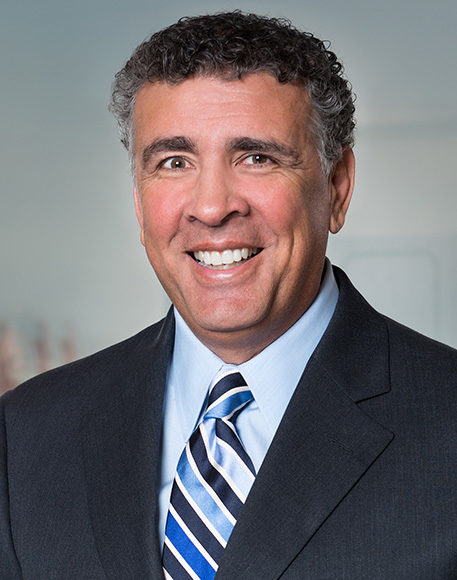What Should You Do if You Believe Your Loved One Is Being Abused in a Nursing Home?
When a loved one moves into a nursing home, we expect they will be treated well by staff, administrators and other residents. The harsh reality is that nursing home abuse is frighteningly common, with more than 15,000 complaints of neglect and abuse reported in 2020. Considering the many cases of abuse that go unreported, the actual number may be much higher.
If you’ve discovered that your loved one is showing signs of abuse, you don’t have to go it alone. There are resources available to help you protect your family member, put a stop to the abuse and hold negligent facilities and staff accountable.
Warning Signs of Nursing Home Abuse
Before reporting abuse, you should be reasonably certain that abuse and neglect are taking place. Unfortunately, not all signs of abuse are clear, and your loved one may not be able to communicate what is happening to them. You must use your best judgment when you suspect neglect is occurring.
The most common signs of nursing home abuse include:
- Bedsores. Bedsores are entirely preventable and are an obvious indicator that your loved one is not being repositioned enough during the day. This alone is a sign of abuse.
- Wounds. Unexplained bruises, cuts, burns and other wounds can signal that your loved one is being physically abused by staff or another resident.
- A decline in hygiene. If your loved one is not showered or wearing clean clothes, or if their appearance and room are unkempt, this likely means that the nursing home is neglectful.
- Unexpected changes to finances. Unusual transactions and missing money are common signs of financial abuse. Another red flag is if your loved one changes their will to include someone outside of the family.
- Changes in behavior. If your loved one is suddenly aggressive, withdrawn or fearful, it may be a reaction to physical, emotional or sexual abuse. Victims may feel uncomfortable talking openly about what they are experiencing.
- Dehydration and weight loss. If your loved one is not being provided with proper nutrition and hydration, it may point to abuse.
- Frequent infections. Infection can spread quickly in communal living facilities, but if your family member seems to be sick all the time, or if their illnesses often become severe, it could mean the facility is not meeting its duty of care.
- Complaints of mistreatment. Even if your loved one has dementia or another condition that makes it difficult for them to communicate, take all complaints of maltreatment seriously. Review these complaints with staff to determine if there is truth to them.
Any of these issues should raise suspicion that the nursing home is engaging in abuse and neglect.
What to Do if You Think Your Loved One Is Being Abused in a Nursing Home
If you believe a parent, spouse or other loved one is experiencing nursing home abuse, the best thing to do is act quickly and calmly.
If your loved one is in immediate danger, it is appropriate to call 911. First responders can give your family member immediate medical attention, and it can trigger a criminal investigation if the nursing home is causing serious harm.
If your family member is not in a life-threatening situation, here are the first steps to take.
Document Signs of Abuse
Gathering and preserving evidence of abuse is the most important thing you can do to help your loved one. This evidence can show a pattern of neglect that will be invaluable if you decide to report suspected abuse or file a lawsuit.
Remember to:
- Take multiple pictures of all wounds and bedsores to show their progression over time.
- Keep written records of what you observe. Be sure to note dates and the level of severity.
- Ask your loved one about their experience in the nursing home and record or write down their response.
- Document any interactions with staff. Try to communicate with nursing home administrators through written means.
- Safeguard financial records that show unusual activity.
- Request medical records that may show a decline in your loved one’s health.
Contact the Nursing Home Ombudsman
Every state has a long-term care ombudsman program available to nursing home residents and their families. This office handles all complaints of nursing home abuse and neglect, and they can help you resolve issues related to your loved one’s health and safety. Ombudsmen can initiate an investigation and report abuse to the police, your state’s Adult Protective Services (APS) branch, or the National Adult Protective Services Association (NAPSA).
Contact a Nursing Home Abuse Lawyer
An experienced nursing home abuse lawyer can provide a wealth of resources to help you protect your loved one and determine whether to file a nursing home abuse lawsuit. Since 1993, Garcia & Coman have been protecting our most vulnerable by being leaders in elder and nursing home abuse litigation. Garcia & Coman have obtained more than $3 billion in results for its clients. Contact us today for more information at 800-281-8515.

Stephen M. Garcia represents victims of elder and nursing home abuse and is known as one of the leading civil litigators in the country. He is Senior Partner at Garcia & Coman, where the firm’s practice is focused on elder abuse, nursing home abuse, and wrongful death of the elderly.
Find out more about Stephen M. Garcia

